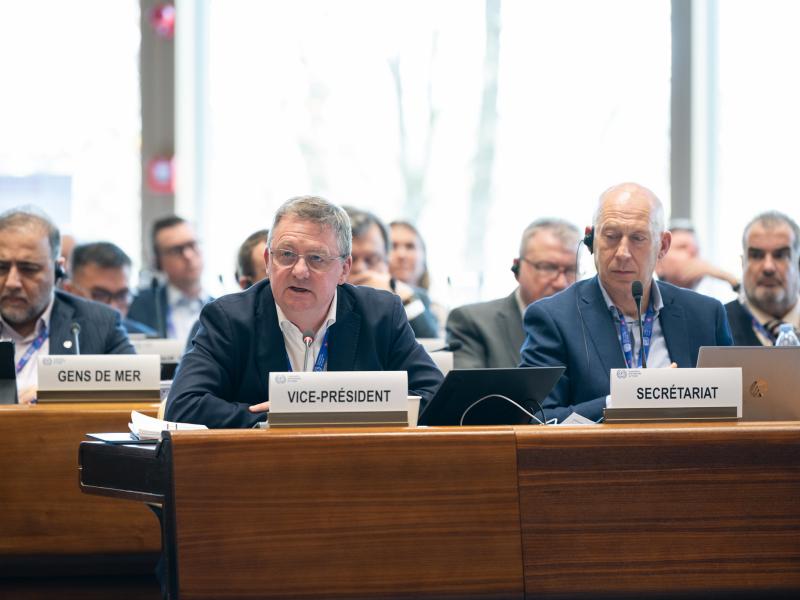Aviation unions have secured major steps forward in advancing labour standards for the global aviation industry at a tripartite meeting at the International Labour Organization (ILO) in Geneva, Switzerland.
The meeting took place from 24-28 April 2023, bringing together government officials of ILO member countries, employers and workers’ representatives. The goal was to discuss opportunities and challenges in occupational safety and health and the promotion of good jobs to shape the recovery of the aviation industry beyond the Covid-19 pandemic.
The meeting’s conclusions, which will not be formally adopted until approved by the ILO’s Governing Body, highlight a recognition of aviation unions’ priorities globally. Importantly, they recognise the need to assess the exclusion of aviation workers from protections provided by international labour standards, particularly on issues of health and safety, and call for the ILO to address it.
Unions also secured language around strategic tripartite action on just transition as well as recommendations that urge the ILO and governments to work with employers and unions to achieve gender equality and remove barriers to women’s recruitment, progression and retention in jobs across the industry.
Global worker group spokesperson Sara Nelson, President of US Association of Flight Attendants-CWA and Vice-Chair of the ITF Civil Aviation Section said today:
“Workers’ health and safety is crucial to the safety of the aviation industry. Decades of deregulation have driven down working conditions, and the effect on health and safety has finally been given the recognition it deserves. We have secured the recognition of this by governments and employers across the world,” said Nelson.
“It was our unity and deep knowledge of the industry that secured this initial win. Now the work begins to transform these commitments into actions that will raise the standards of our industry and achieve a new deal for aviation workers.”
Decades of deregulation and crises have led to a lack of decent working conditions making the industry far less attractive to workers. Some employers have kept on cost cutting at the expense of basic workers’ rights. The catastrophic weakness in this long-term trend was thrown into glaring light by the pandemic. Vital parts of the industry still have 25 percent shortages in the workers needed to make the industry viable, Nelson pointed out. These shortages are driven by the industry losing its reputation as being a source of good, stable and secure jobs.
“When I joined this industry as a flight attendant 27 years ago, aviation jobs were good, sought- after, well-respected jobs. They paid well, were regular forms of employment, full-time with regular hours of work, decent health and safety standards and offered a pathway to a dignified retirement,” said Nelson.
“Today, jobs in the industry are defined by unpredictable hours, increasing fatigue, insufficient wages, weakened retirement, and non-standard forms of employment. We are committed to working with employers and governments to put decent work front and centre to rebuild aviation into an industry that is economically, socially and environmentally sustainable.”
The workers’ delegation was composed of representatives from ITF and the International Federation of Air Line Pilots' Associations (IFALPA). The International Federation of Air Traffic Controllers' Associations (IFATCA) observed the meeting.
Workers’ rights fundamental to a sustainable and stable industry
The ILO meeting in Geneva was the first time in ten years that the industry came together to discuss labour issues. The technical meeting hosted by the ILO, addressed issues around a green, sustainable and inclusive economic recovery for the civil aviation sector. Discussions were wide ranging, including the need for a just transition for workers to a decarbonised industry, the chronic gender imbalance and gender-segregation in the workforce, and the need to improve safety standards. The right to form and join unions and collectively bargain for better conditions also needs to be more firmly protected globally.
“Our industry is facing serious challenges,” said Edgardo Llano, General Secretary of Argentine union Asociación del Personal Aeronáutico (APA) and Chair of ITF’s Civil Aviation Section led ITF’s delegation at the meeting. “Across the world, hundreds of thousands of passengers have had flights cancelled or delayed, or their luggage lost as the industry tried to add capacity while facing severe worker shortages.”
“The chaos of last year was not what our recovering industry needed. Aviation unions across the world warned of the consequences of employers' decisions to fire thousands of skilled aviation workers and use the Covid crisis to further erode labour standards and aviation workers’ rights,” said Llano.
Arguments put forward over the course of the meeting by unions drew on major pillars of the ITF’s ‘New Deal for Aviation’, which were integrated into the meeting’s outcomes.
“A green, sustainable and inclusive economic recovery for aviation requires strong regulation and industry-wide coordination, a zero-risk culture that puts health and safety first, a genuine pathway to a zero-carbon future industry, and the inclusion of workers in decision-making. These pillars sit at the heart of ITF’s vision for the industry, and at the heart of addressing the critical challenges following decades of deregulation and fragmentation.”



